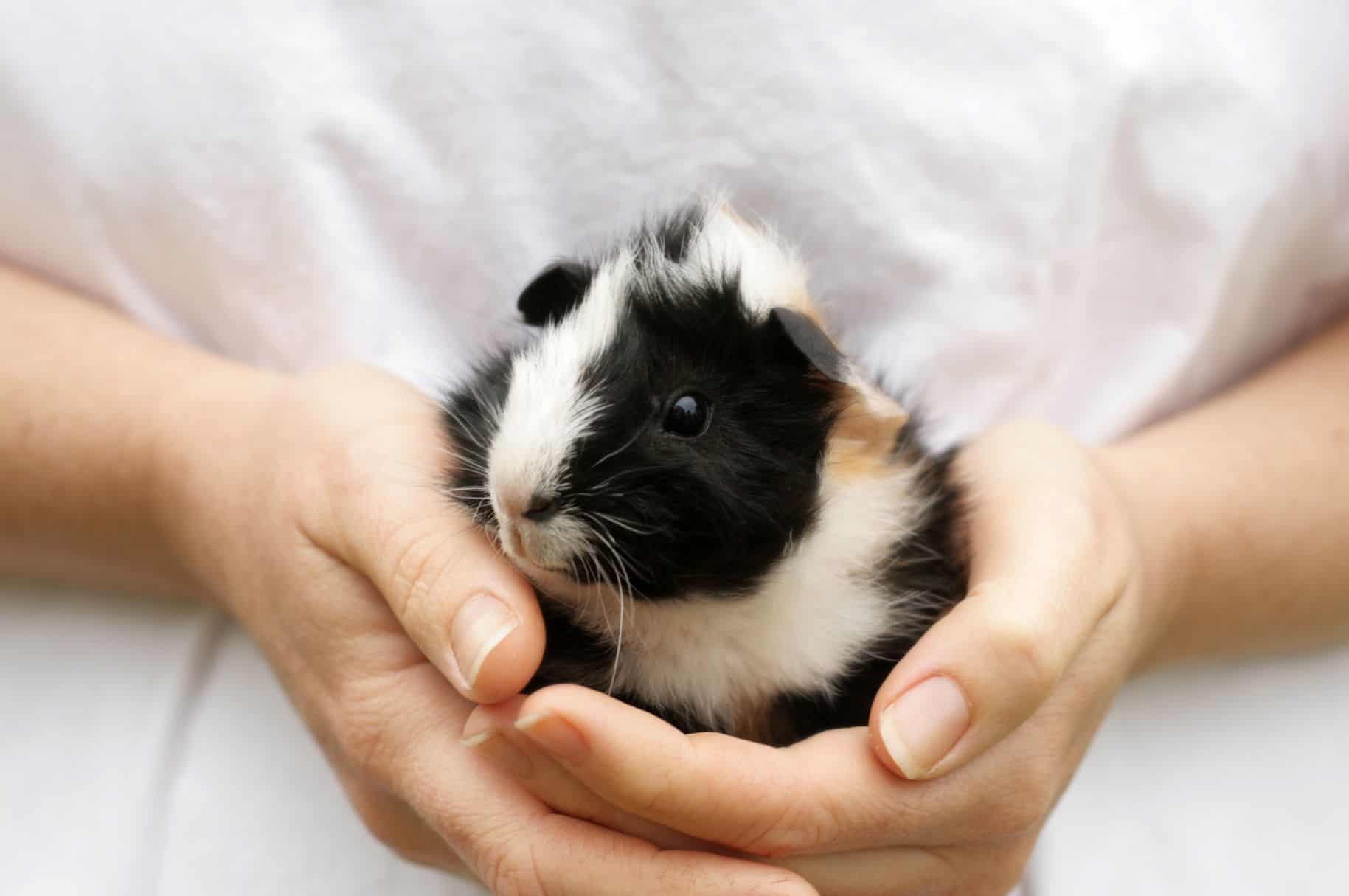The Ins and Outs of Basic Guinea Pig Care


Guinea pigs are often perceived as great introductory pets for young children, but the proper care of these sweet, curious, little rodents is far from elementary. Of course, guinea pigs, or cavies, make great family pets. Parents must do the heavy lifting when it comes to their safety, hygiene, nutrition, and overall health. Guinea pig care is very gratifying, and we’ve got some tips for successful adoption and maintenance for first-time owners.
A Brief History
Guinea pigs are native to the Andes Mountains in South America where they were raised as both food and sacrificial offerings to Incan gods. In the 1500s, Dutch explorers brought guinea pigs back to Europe where they were selectively bred by fanciers. Used in animal testing as early as the 1700s, guinea pigs have been integral to scientific advancement. Owing to their cuteness, guinea pigs have been kept as pets for hundreds of years.
You Get What You Give
Guinea pigs require an investment of time, energy, and money. The more involved you are in guinea pig care, the happier and healthier your pet will be. When you provide attention and enrichment to your guinea pig, their personalities shine through..
Giving Them What They Need
On average, guinea pigs live about 5-7 years. If you are able to accept the responsibility of providing for them for the duration of their life, you’re ahead of the curve.
Diet and Habitat
The average adult guinea pig weighs about 2 pounds. They like to eat a variety of foods. High-quality hay, such as timothy, is required every single day, and makes up the majority of their daily diet. Avoid alfalfa, as it is too high in calcium (leading to bladder stones) and calories.
Guinea pigs can suffer from vitamin C deficiency, which is a leading cause of scurvy. Avoid this by providing potent vitamin C foods, including orange slices, pineapple pieces, and Chinese cabbage.
It is fun to watch guinea pigs “hunt” for their food hidden in different types of toys or habitat additions. A source of clean, fresh water is essential to their wellness.
Staying Squeaky Clean
A primary element of guinea pig care is their housing. A solid floor can reduce problems or injuries to their feet, and should be covered in adequate bedding. Typically made of recycled paper, bedding must be changed out frequently to improve hygiene in their habitat. You want to provide enough room (at least 100 square feet per pig) to accommodate a sleeping space, a hang out zone, kitchen/meal area, and a bathroom.
Place their enclosure in a safe area in the home, away from direct sun, drafts, or moisture. You can leave the top off if your resident cats/dogs do not pose a threat to guinea pig care and safety. Most active at night, guinea pigs should reside in an area of the home free of chaos and noise during the day.
Living in Peace
As social animals, guinea pigs benefit from sharing their space with another cavy. Unless they are spayed/neutered or you want them to mate, guinea pigs should be the same sex. Keep a close eye on relationship dynamics, and separate if necessary.
Essential Guinea Pig Care
Because guinea pigs can develop a range of health conditions and illnesses, it is critical to keep a strict schedule of annual wellness exams. We are proud to offer guinea pig care. Check out our small mammal information form before scheduling your guinea pig’s first appointment.
Our veterinarians and staff members are always happy to assist you at Animal Care Unlimited.
